Publications
The processes of subjectivation within a cooperative of workers in the City of Rosario, Argentina, are analyzed and interpreted in relation to literature in the fields of philosophy, economic geography, ethnographies and sociolinguistics. This text has been written by a team of 8 people (two collaborative researchers and six workers researchers).
There is burgeoning interest in the role of infrastructures as performative socio-technical systems that shape urban life. In this paper, we make visible an often-hidden and diverse infrastructure of care, the Community Food Provisioning Initiative (CFPI) sector. We discuss CFPIs as often hidden, yet vital infrastructures of care. Drawing on research on the CFPI sector in Sydney, Australia, we attend to the diverse ways in which CFPIs are governed, the materialities that constitute them and the diverse economic practices that support them.
This paper presents three stories of communities in the Philippines. Each story reveals how local people and environments, in their own unique way, negotiate collective well-being in the face of climate uncertainty.
This short essay is part of the last volume in the Future Cities Laboratory Indicia Series. It contributes to the principle of 'Stimulating Diverse Economies' in designing sustainable future cities. The paper is an invitation for various social and institutional actors to accommodate diverse livelihoods. It suggests that for cities to become genuinely resilient, their design and development need to pay attention to the plural and entangled forms of work that are crucial in creating a sustainable condition for both human and earth others to flourish.
For several months, we, the three authors, met once a week to share stories about our evolution as social justice educators. While we come from different back- grounds and are different ages, we have each pursued a career in academia, moti- vated by a desire to address social injustice. Different identities and experiences have shaped our lives, but we share a common understanding of social justice and a collective desire to make an impact on the lives of our students. We are Korean, Black, and White, all raised in the United States. We are cisgender heterosexual, bisexual, and gay. We are from the northeast and the south. Together, our ages span two decades. We were raised upper-middle, middle, and lower middle class.
This article critically assesses Western views on the social economy against everyday realities in rural northern Cambodia. Three enterprises with different characteristics were selected, giving insight into a social business providing family planning services, cooperativism and post-capitalist possibilities represented by a women-run agricultural and savings cooperative, and the reasoning of an Indigenous community that relies heavily on the forest. It draws conclusions about the direction of the rural social economy in Cambodia, giving insights of value to the designers of programs or projects to support social enterprise working within international development agencies and non-government organisations.
Abstract: The rapid expansion of urban development in Asia over the last 50 years has seen a rise in demand for building materials. From large construction companies to squatter settlers seeking to improve their housing, concrete is the building material of choice. In the Philippines there is plentiful supply of the limestone and aggregate (sand and gravel) required for concrete production. Alongside the large quarries owned by major corporations are small, often illegal quarries, supplying aggregate to the construction industry. In these shadow places informal miners scratch out a precarious livelihood. They are members of a vast artisanal and small-scale mining (ASM) workforce that is global in extent.
The Cooling the Commons pattern deck is a website comprising 41 illustrated patterns of ‘cool commons’. Cool commons are publicly accessible cool urban environments that offer an alternative to airconditioned private spaces in cities where heat is compromising liveability. The website is designed as an open resource to facilitate design decisions that defend, protect, and enhance the presence of cool commons. The pattern deck builds upon the research report Cooling Common Spaces in Densifying Urban Environments which explored cool commons of relevance to Landcom’s urban renewal sites and included 5 prototype patterns.
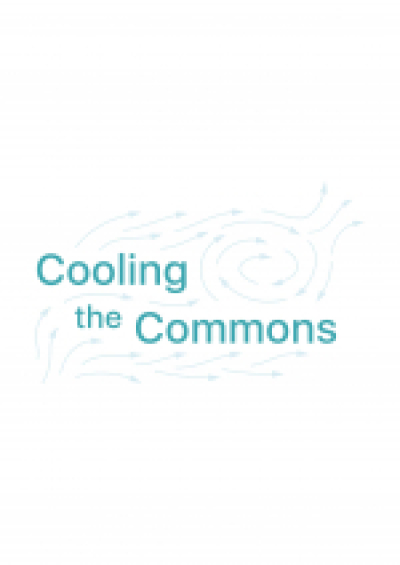
This chapter extends upon the book's discussions of habit to the process of adapting to anthropogenically induced global warming. We reveal the role of designed practices, products and infrastructures in habituating urban populations to a changing climate. Our central concern is the ‘world within the world’ design has helped to create. In the rapidly densifying city, atmospheric commons are shaped and reshaped by human design; climate change is lived and felt in hostile heat islands and polluted, particulate-laden city air. Design offers a critical perspective on the dynamics that have shaped the city and organised the civic practices of its inhabitants.
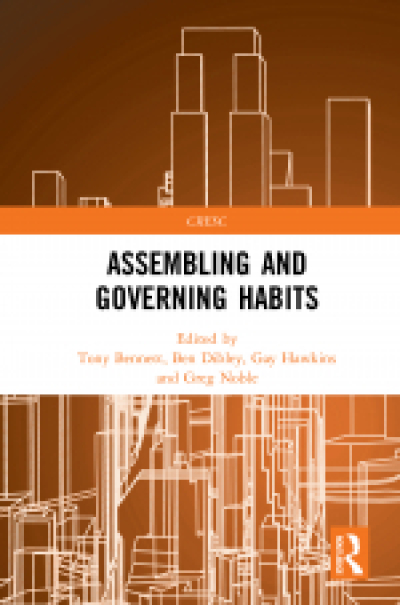
This is a chapter on Community Economies for the Routledge Handbook of Global Development. The chapter discusses how a community economies approach to development focuses on seeking out and strengthening already existing post-capitalist worlds. This involves community economies scholars using action research methods to work with community-based partners to help make post-capitalist activities more visible, and then to devise ways and means to build on and strengthen these activities.
This chapter in a book about post-capitalist futures outlines a community economies approach to post-capitalism. The chapter describes how a community economies approach to post-capitalist futures starts in the here and now with what is ‘at hand’ to build a more just and a more sustainable world and it highlights two strategies that community economies scholars and activists use to help strengthen existing post-capitalist practices. One strategy is to identify existing economic diversity and the ways it is being used for more just and sustainable economies; the second is to engage in actions to strengthen these economies.
From the crises of racial inequity and capitalism that inspired the Black Lives Matter movement and the Green New Deal to the coronavirus pandemic, stories of mutual aid have shown that, though cooperation is variegated and ever changing, it is also a form of economic solidarity that can help weather contemporary social and economic crises. Addressing this theme, Practicing Cooperation delivers a trenchant and timely argument that the way to a more just and equitable society lies in the widespread adoption of cooperative practices. But what renders cooperation ethical, effective, and sustainable?
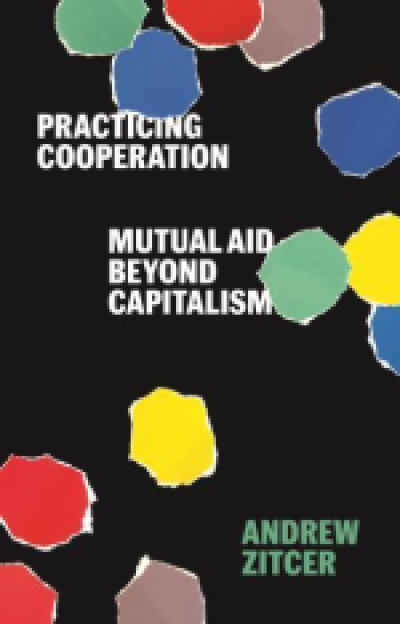
The breast/chestfeeding body is a site of intense politics and power relations in the United States. Hardly a week passes without an incident in the news of a person being publically shamed, or unlawfully asked to change their behavior while using their body to feed their infant in public. Lactating bodies are deemed out-of-place. Simultaneously, birth-parents are judged on their infant feeding practices, with those who do not nurse cast outside of the biologically deterministic ‘good mother’ role. This framing causes the nursing or not-nursing body to become a site of debate. These takes, which point to governance, surveillance, and sexualization of bodies are limiting and have brought these debates to an impasse.
Recent research into waste has moved beyond focusing on individual behaviour change to the wider practices, systems, and social norms that construct and perpetuate waste. Running alongside this work on waste, community economy scholars have been exploring how communities form around and care for commons. In this paper we draw on social practice theory and community economy thinking to illustrate how a food rescue organisation, Kaibosh, based in Wellington, New Zealand, has created practices and mobilised meanings that enable people to collectively manage surplus food, address food poverty, and reduce waste. We show how these food rescue and distribution practices push back against individualised despair, moralism, or guilt, and connect people across food systems.
Greenfield Community College’s (GCC) faculty and staff are predominantly white (93%) and though most espouse progressive politics and have the best of intentions, conversations on campus focused on race or racism are still difficult. In an attempt to address this challenge, we created a book group based on Robin DiAngelo’s White Fragility: Why it’s so Hard for White People to Talk About Racism.
PAR is a methodology that democratizes research by transforming the relationship of researcher and participants to where they are working together to actively learn about and create change in the world. In the context of student success for Black, Indigenous and other people of color (BIPOC) and other underserved students, the best place to learn about this is by recruiting students to become co-researchers and engaging students to help analyze the data and collaborate in finding ways to improve student success.
Increasingly, other-than-scientific questions and creative expressions of climate change are gaining ground as legitimate forms of new knowledge in the fields of feminism, environmental humanities, environmental cultural studies and design studies, of which this piece of work is a part. The work offers a novel contribution to this interdisciplinary scholarship by creatively interpreting the perspectives, experiences and practices of people living with urban heat in Penrith NSW as an imagined conversation between a mother and child.
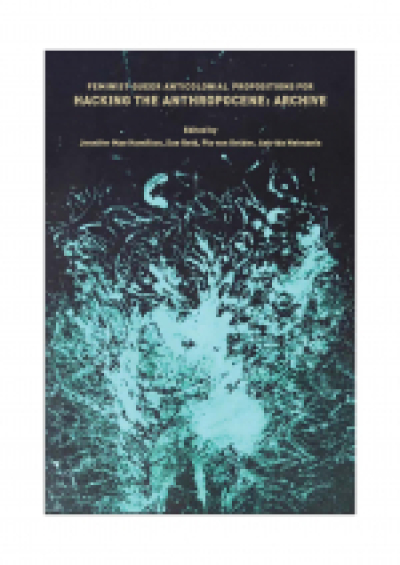
How to create the social and material conditions that make critical, transformative design practice possible? This question continues to drive us in our work, especially because we are convinced that if we want design skills to be used for the creation of a world into which many worlds fit, then lots of people interested in doing such transformative work need to be enabled to do it repeatedly and in the long-run.
Purporting that particular manifestations of social enterprises are conditioned, at least in part, by the cultural context in which they are enacted (Peredo & McLean 2006), the chapter seeks to unveil the ethnocentrism inherent in dominant renditions of social enterprise by zooming in on a United Nations project geared toward promoting entrepreneurial activity in and, ultimately, the livelihood of indigenous Cambodian forested communities. This research explores the everydayness of social enterprise among an indegenous resin tapper community in two adjacent villages, in Rovieng District which lies to the south of Preah Vihear Province in northern Cambodia.
Dominated by conflict, Turkey’s Kurdish Question has transformed over time, opening up new areas of inquiry. Under the Democratic Autonomy project ongoing since the mid-2000s, Turkey’s Kurdish Movement has promoted cooperatives and communes—a post-capitalist marketization project—in Northern Kurdistan. Drawing upon economization studies and diverse and community economies studies’ engagement with assemblage thinking, this article scrutinizes the retailers’ cooperative model the Movement experimented with and explains the practices linked to post-capitalist marketization: creating inclusive platforms for debate, incorporating ordinary actors as experts, and upscaling post-capitalist marketization through building relations with other cooperatives.
This article advances a framework for the study of community economies as assemblages constituted and shaped by three primary dynamics: relations, resources and constraints, and processes of stabilization and destabilization. Drawing on diverse and community economies scholarship, assemblage theory and actor-network theory, we develop a framework that will contribute significantly to understandings of the emergence of community economies and the strategies that make them more resilient and sustainable. The conceptual framework is illustrated through a case study from Turkey’s Kurdish region – a women’s cooperative that remained resilient in the face of armed conflict and political violence.
The worldwide social and ecological unravelling of the 21st century presents an unprecedented challenge for thinking and practising liveable economies. As life support systems are annihilated in view of the sustainable accumulation of capital, social and economic alternatives are rapidly emerging to shelter possibilities for life amidst the ruins. Postcapitalism has gained increasing attention as an invitation to amplify existing alternatives to systemic scale. The transformations required are the focus of social movements, political projects and academic research that demand the theorisation and organisation of alternatives to capitalist realism today.
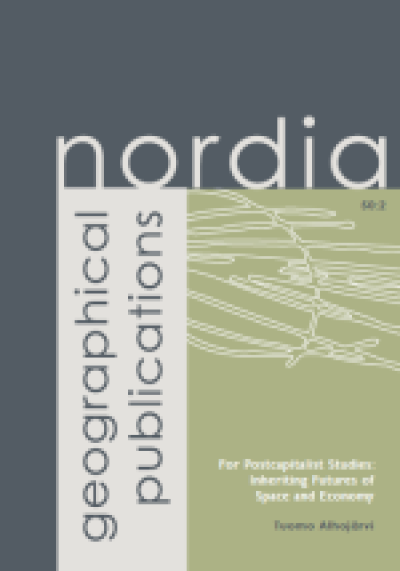
Increasing small-scale vegetable production is a key target for growing a more sustainable food system. At first glance, meeting this target seems straightforward. On closer inspection, particularly in contexts experiencing the on-going effects of climate uncertainty and economic uncertainty, it can be hard to achieve. Community education has a vital role to play.
This is a translation of Chapter 2 by Gibson Graham and Miller in the book MANIFESTO PARA VIVIR EN EL ANTROPOCENO Katherine Gibson, Deborah Bird Rose, and Ruth Fincher, editors (Manifesto for living in the Anthropocene, in English).
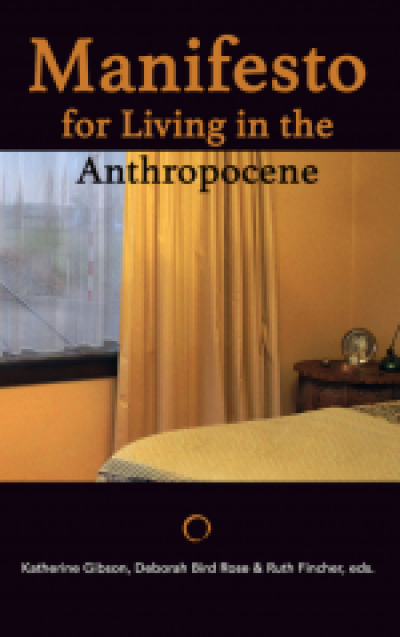
We analyze actions carried out by rural inhabitants in the Provinces of Chaco and Buenos Aires, Argentina, carried out to counteract the effects of the agro-industrial model. The actions we analyze may seem minor or even go unnoticed, yet they are the way in which these populations counteract hegemonic politics of death. Through analyzing what we term "semantic chains" we are able to show that the people with whom we work act, perceive and signify their relation to land, work, and life in contextually situated ways by which they defend their right to live as they choose. In order to carry out these actions, several groups cooperate, and build coalitions, even though these coalitions are not perceived as stable political structures of participation, nor are they spoken in those terms.

Invasive Tourism and Mapuche Tourism: indigenous territory and entrepreneurship with identity in Lake Icalma, Higher Biobio - This qualitative research explores the economic agency of Mapuche tourism entrepreneurs at the intersection between Development with Identity discourse and the touristification of Mapuche-Pewenche territory in Southern Chile.
In this paper, I reflect on multiple “failures” I encountered during my fieldwork on agricultural cooperatives in Kyrgyzstan: from my own “failure” to comply with a linear research design to the alleged “failure” of farmers to cooperate within the formal boundaries of cooperatives. I then suggest how a feminist research practices based on a performative ontology enables a reframing of these experiences that opens space for more hopeful affects.
My doctoral thesis investigates cooperation practices within and beyond agricultural cooperatives. Based on ethnographic fieldwork in a village in Kyrgyzstan, it unravels local and international discourses of nostalgia, contempt and pride linked to cooperation practices in socialist and postsocialist times, and reflect on the subjectivities entangled with these discourses. It thereby proposes a postcapitalist reading of postsocialism as a concept and space.
We comment on Bruno Latour's post-COVID futures essay and his book on terrestrial politics with reference to Aotearoa New Zealand and grounded Indigenous politics of place. We seek postcapitalist possibilities in a number of key events of 2020.
Mushroom-foraging in Finland is often done in forests that live according to a cycle of clearing, planting and thinning. In this article, forest management that prioritizes short-rotation timber production is termed ’plantationocentric’, following critiques of capitalocentrism in feminist economic geography. In plantationocentric discourses and practices, plantations, characterized by simplification, forced multispecies labour and temporal disturbances, are taken as the model for all primary production. This in turn subordinates various actual and potential livelihood practices, including foraging.
